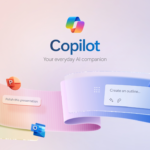Introduction

In the ever-evolving landscape of digital marketing, Search Engine Optimization (SEO) has long been a cornerstone strategy. Businesses and content creators rely heavily on search engines like Google to drive traffic to their websites. However, with the advent of advanced AI models like ChatGPT, which can answer user queries directly and provide detailed, conversational responses, the future of traditional search engines is being questioned. If ChatGPT or similar AI technologies were to surpass search engines in popularity and usability, the entire SEO paradigm would shift. This blog explores the potential future of SEO in a world where ChatGPT dominates, examining the implications, challenges, and opportunities this new era might bring.
1. The Evolution of Search Engines and SEO
1.1. The Rise of Search Engines
Search engines revolutionized the way information is accessed on the internet. Early search engines like Yahoo! paved the way, but it was Google, with its sophisticated algorithms, that truly transformed information retrieval. Over the years, SEO practices evolved in tandem with search engine algorithms, focusing on keyword optimization, link building, and content relevance.
1.2. The Role of SEO
SEO became essential for businesses aiming to increase their online visibility. Techniques such as keyword research, on-page optimization, backlinking, and content marketing were refined to improve search engine rankings. SEO not only helped in driving organic traffic but also played a critical role in brand building and online reputation management.
1.3. Enter AI and Chatbots
The introduction of AI and chatbots marked a significant shift. AI models like ChatGPT can understand natural language queries and provide immediate, contextually relevant responses. This capability challenges the traditional search engine model, which relies on indexing and ranking web pages to present a list of links as search results.
2. How ChatGPT is Changing the Search Landscape
2.1. Instant and Direct Answers
ChatGPT offers users instant answers to their questions without needing to click through multiple links. This immediacy and convenience could lead to a decline in traditional search engine use, as users prefer the efficiency of direct responses.
2.2. Enhanced User Experience
The conversational nature of ChatGPT provides a more interactive and engaging user experience. Unlike search engines, which can present overwhelming lists of links, ChatGPT delivers tailored responses that can refine follow-up questions, making the information-seeking process more intuitive and user-friendly.
2.3. Reducing Reliance on Traditional Search Engines
As AI models improve and become more widely adopted, there could be a significant shift in how people access information. This shift would reduce reliance on traditional search engines, impacting web traffic patterns and the strategies businesses use to reach their audience.
3. The Impact on SEO Strategies
3.1. Shift from Keywords to Conversational Content
With ChatGPT’s rise, the focus of SEO will shift from keyword optimization to creating conversational and contextually relevant content. Businesses will need to understand the nuances of natural language processing (NLP) and adapt their content to meet the expectations of AI-driven responses.
3.2. Importance of Structured Data
Structured data will become even more critical in ensuring that AI models can accurately interpret and retrieve information. Markup languages like schema.org will play a pivotal role in how content is understood and presented by AI systems.
3.3. Content Quality Over Quantity
The quality of content will surpass quantity in importance. High-quality, authoritative, and well-structured content will be favored by AI models, which prioritize providing accurate and valuable information to users.
3.4. Focus on User Intent
Understanding user intent will be paramount. SEO strategies will need to align more closely with the specific questions and needs of users, tailoring content to provide clear, concise, and relevant answers.
4. Opportunities in the AI-Driven SEO Landscape
4.1. New Content Formats
AI models open up opportunities for new content formats. Interactive and multimedia-rich content that can be easily parsed and presented by AI will become increasingly valuable.
4.2. Personalized Content Delivery
AI allows for highly personalized content delivery. Businesses can leverage AI to provide customized experiences, tailoring content to individual user preferences and behaviors.
4.3. Enhanced Analytics and Insights
Advanced AI analytics will provide deeper insights into user behavior and content performance. These insights can inform more effective SEO strategies and content development processes.
5. Challenges and Considerations
5.1. Data Privacy and Security
With AI models handling vast amounts of data, privacy and security concerns will be paramount. Ensuring compliance with data protection regulations and maintaining user trust will be critical.
5.2. Ethical Implications
The ethical implications of AI in SEO must be considered. Transparency in how AI models operate and ensuring they do not perpetuate biases or misinformation will be essential.
5.3. Adaptation and Skill Development
SEO professionals will need to adapt and develop new skills to thrive in an AI-dominated landscape. Continuous learning and staying abreast of AI advancements will be necessary to remain competitive.
6. The Future of SEO: A Hybrid Approach
6.1. Integration of AI and Traditional SEO
The future of SEO will likely involve a hybrid approach, integrating AI capabilities with traditional SEO practices. This integration will enable businesses to leverage the strengths of both methodologies to maximize their online presence.
6.2. Collaborative AI Models
Collaborative AI models that work alongside traditional search engines could emerge, providing a balanced information retrieval experience. These models would combine the precision of AI with the comprehensive indexing capabilities of search engines.
6.3. Continuous Evolution
The SEO landscape will continue to evolve as AI technology advances. Staying agile and responsive to changes will be crucial for businesses to maintain their competitive edge.
Conclusion
The potential dominance of ChatGPT and similar AI technologies represents a significant shift in the digital information landscape. While traditional SEO practices may be disrupted, the evolution of AI-driven content delivery also presents new opportunities for innovation and growth. Businesses that adapt to these changes by focusing on high-quality, conversational content and leveraging the capabilities of AI will be well-positioned for success in the future. As the SEO paradigm shifts, staying informed and agile will be key to navigating the challenges and capitalizing on the opportunities of this new era.


